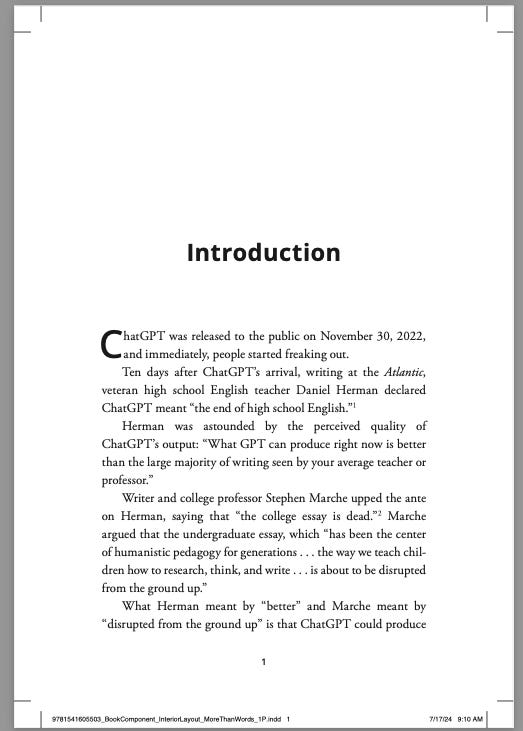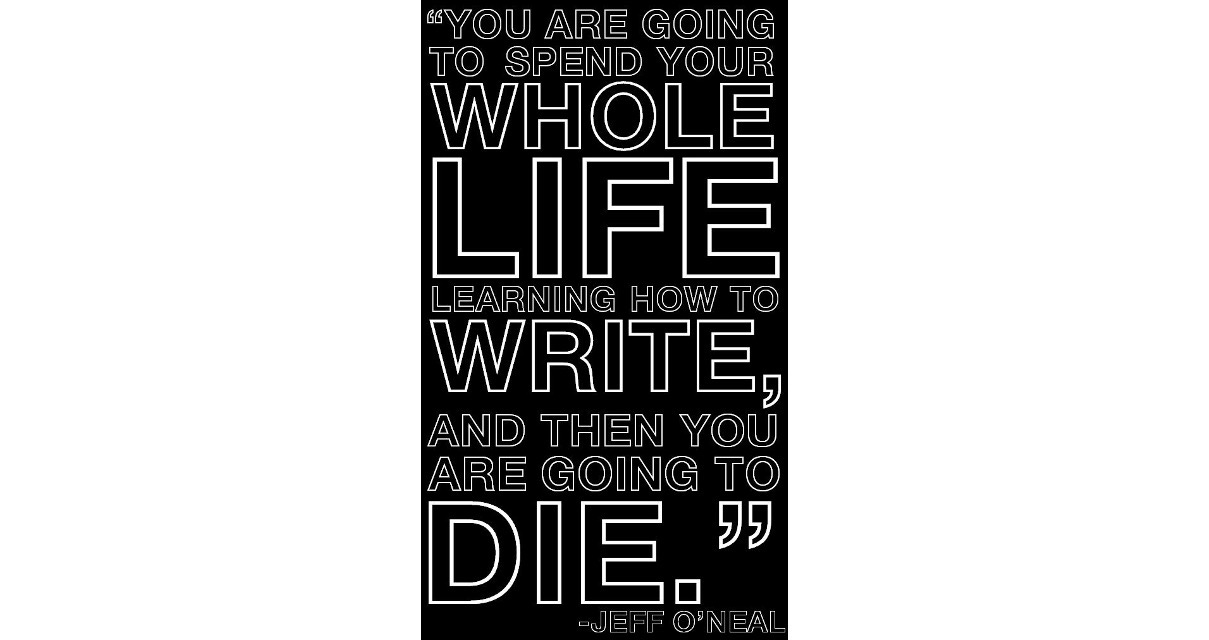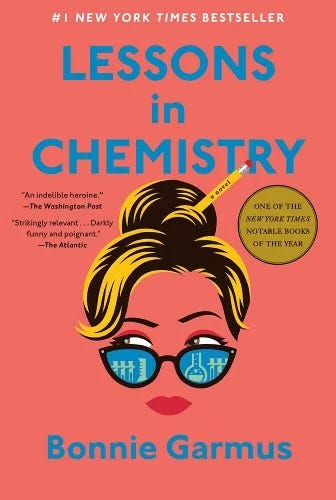I am feeling very proud of myself this week.
Because I am resolutely midwestern in disposition (despite not having lived in the Midwest for almost 25 years), I get uncomfortable even typing those words, but I set this newsletter up as a place to say true and hopefully interesting things about reading and writing, so here we are.
I’m proud because I finished my review of the page proofs for More Than Words: How to Think About Writing in the Age of AI. For the non-writers out there, page proofs are the digital file of the fully laid out and formatted book, the book’s interior. the first page of the book’s text looks like this:
The author is strongly discouraged from making significant changes to the page proofs since the book has already been through copyediting and formatting and every alteration has ripple effects on the book’s layout and introduces potential new errors. Even with multiple layers of reading, copyediting, crosschecking, etc…this book, like every book, will have mistakes in it. This is one of the ways you know a book was worked on by humans.
But you want to keep those to a minimum.
So reading page proofs is a challenge because it is entirely possible, even probable that one would wish to make significant changes to the book, but not be allowed to do so. This creates a certain sour feeling in one’s stomach as you worry that the book the reader will encounter is not the one you could have delivered.
I am proud because I did not experience that sensation this time around. For sure, I found some spots that benefitted from some nipping and tucking, some sharpening, or even some dulling, but reading my own book, I sometimes had the sensation that someone else had written it, which I’m taking as a good sign.
It’s a good book! There, I said it. It’s the best book I’ve written. (I can’t believe I said that.)
One of the quotes I share with every group of students I’ve ever worked with, and is also included in my last three books comes from Jeff O’Neal, who was once a college writing teacher before starting the Book Riot media empire.
The thing I try to communicate to students with this message is that there is real pleasure in this reality, not the dying part, but the fact that writing is something that can provide difficult, but pleasurable and worthwhile challenges forever and it is something you can continue to improve at forever.
I am undoubtedly middle-aged now (54); the checkers at Publix ask if I qualify for the senior discount. Next year will mark the 27th that I’ve been publishing publicly, the 24th since my first book. Reading More Than Words I kept thinking to myself “you’re just getting started.”
I don’t suggest to the students I’ve worked with that every one of them could be sustained by reading and writing in the ways I am, but the thing I want them to understand is that it is possible to find your work, the activities that will sustain you.
Writing is it for me, reading too.
More on men and reading
After writing both my column and newsletter last week about the reading habits (or rather non-habits) of men, I was very pleased to hear from a number of men who read one or both of them who shared their perspectives and experiences as readers in both the comments on the post, and via email.
A couple of things became clear.
One, we men who read books are - and I’m including myself here - pretty old. Obviously the selection of people who could encounter my original piece skews older to begin with because it was published in a newspaper (remember those?) which are only read by old people (like me), but the median age of my correspondents seemed to be north of seventy.
This is all anecdotal and speculative, but it does seem as though reading as a habitual activity is something that was more likely to be established in previous generations. We could maybe blame the rise of alternative distractions like TV, video games, social media, etc…but two of those things were around when I was a young’un and I spent many hours watching TV and playing video games and still also read all the time.
My peers of my generation with similar educational backgrounds who did not grow up in a bookstore like I did also have ingrained habits of reading. Mrs. Biblioracle always has a book going. She’s in a book club that isn’t just about sitting around drinking wine.
For sure, there’s new bookworms being made all the time. At least when I go to the bookstore, I always see some little ones who seem energized by books, but the data around casual reading, some of which I shared in a previous newsletter, suggests that reading is an increasingly niche activity.
I don’t think how reading is treated in school contexts is solely to blame, but I know it’s not helping. The notion that part of learning to read should be helping students develop a connection to books and an appreciation for reading is, to my eye, largely absent from curricular standards.
Another thing that became clear from some of the men who wrote me is that they really do have a hard time finding fiction that they would enjoy, and for this reason, tend to stick to non-fiction on subjects of interest. In my experience there’s no lack of fiction that will appeal to male readers, but I have a lifetime of knowing how to sort through the choices to know what’s likely going to work for me.
But, even with that skill, it’s important to recognize that finding fiction you really connect to often requires spending time with books you might not be simpatico with. It’s become such a habit that I don’t even think about it anymore, but for years now, for every work of fiction I finish there’s probably three or four that I sample - to varying degrees - but don’t read to completion.
My best advice to anyone who wants to enjoy reading fiction is to be willing to abandon any book that just isn’t working for you. This is how I figured out that most of what is positioned as “upmarket” fiction doesn’t really do much for me as a reader.
The whole conceit of “The Biblioracle” is that I help people find books they enjoy reading, and reading these missives from men, it seems as though male readers may need extra help to find fiction that they will enjoy.
I’m going to try to figure out something I can do on that front. Watch this space.
In closing, I’m going to say again how grateful I am to be all grown up and have these sustaining and sustainable things in my life.
Does reading work this way for anyone else?
Links
This week at the Chicago Tribune, I wrote about Halley Butler’s Banal Nightmare, a novel I wouldn’t say I enjoyed, exactly, but also I couldn’t stop reading it.
In other John Warner creates content news, at Inside Higher Ed I wrote about how some governors and legislatures have turned their responsibilities for oversight of public higher education institutions into vectors of intimidation and control, to the detriment of the institutions themselves.
newsletter post this week on 10 things about writing hit me extra hard given the pride I’ve been feeling in myself this week.Colin Dickey does a lengthy review of a book I’ll never read, Dawn’s Early Light by Kevin Roberts, the chief architect of Project 2025. The book’s publication has been delayed until after the election because it has become an electoral albatross for Trump and JD Vance (who wrote the book’s forward), but Dickey argues it’s important to know how dark a vision it portends for the country.
Shel Silverstein’s verse for children was an indelible part of my childhood. At the Times, Elizabeth Egan works through his essential books.
From
this week another piece this hit close to home, “An Oral History of My Aging Body” by Janine Annett.Recommendations
1. James by Percival Everett
2. Great Expectations by Vinson Cunningham
3. North Woods by Daniel Mason
4. King by Jonathan Eig
5. G-Man J. Edgar Hoover and the Making of the American Century by Beverly Gage
Jerry J. - Melrose MA
For Jerry, I’m going classic, Revolutionary Road by Richard Yates.
1. Beloved by Toni Morrison
2. Light Years by James Salter
3. Real Life by Brandon Taylor
4. Exhibit by R.O. Kwon
5. The Haunting of Hill House by Shirley Jackson
Esmé W. - San Francisco, CA
Lydia Millet’s Dinosaurs is a great novel showing how it’s possible to knit oneself back together and it’s my pick for Esmé.
1. One Garden Against the World by Kate Bradbury
2. Slow Productivity by Cal Newport
3. Bring Up the Bodies by Hilary Mantel
4. Parable of the Sower by Octavia E. Butler
5. The Accidental Garden by Richard Mabey
Rebecca W. - Eugene, OR
Margaret Atwood’s Oryx and Crake is both love story and frighteningly on point dystopia deeply concerned with the natural world. I think it’s right in Rebecca’s wheelhouse.1
Hitting the road this week, back to the Midwest of my birth to deliver a talk at Grand Valley State University and then spend some time at the cabin on a lake in southern Michigan my family has been going to for 40 years.
Nonetheless, there will be fresh posts here, including a very special Q&A with Alison Espach, author of The Wedding People, and newly minted New York Times best seller!
That’ll be Tuesday.
Until then, take care,
John
The Biblioracle
All books (with the occasional exception) linked throughout the newsletter go to The Biblioracle Recommends bookstore at Bookshop.org. Affiliate proceeds, plus a personal matching donation of my own, go to Chicago’s Open Books and an additional reading/writing/literacy nonprofit to be determined. Affiliate income for this year is $63.30.






I do have to be cognizant of why I'm stopping a book, to make sure it's rooted in something beyond distraction or annoyance. The book I wrote about in my column this week, Banal Nightmare, was almost repulsive at times (not graphic, but in the way it portrays certain emotional states), but I recognized that repulsion as a reaction that meant the book was doing something deliberate to me. I thin the biggest tell for me is if I'm just bored. If that's happening, it's a bad sign.
Congratulations on your page proofs! I’m very excited to read this latest book.
My goal for this year is to model reading and discussing literature every single day, providing my students with a consistent practice of reading and talking about reading. I hope this helps my students, especially my boys, to form a connection to reading.